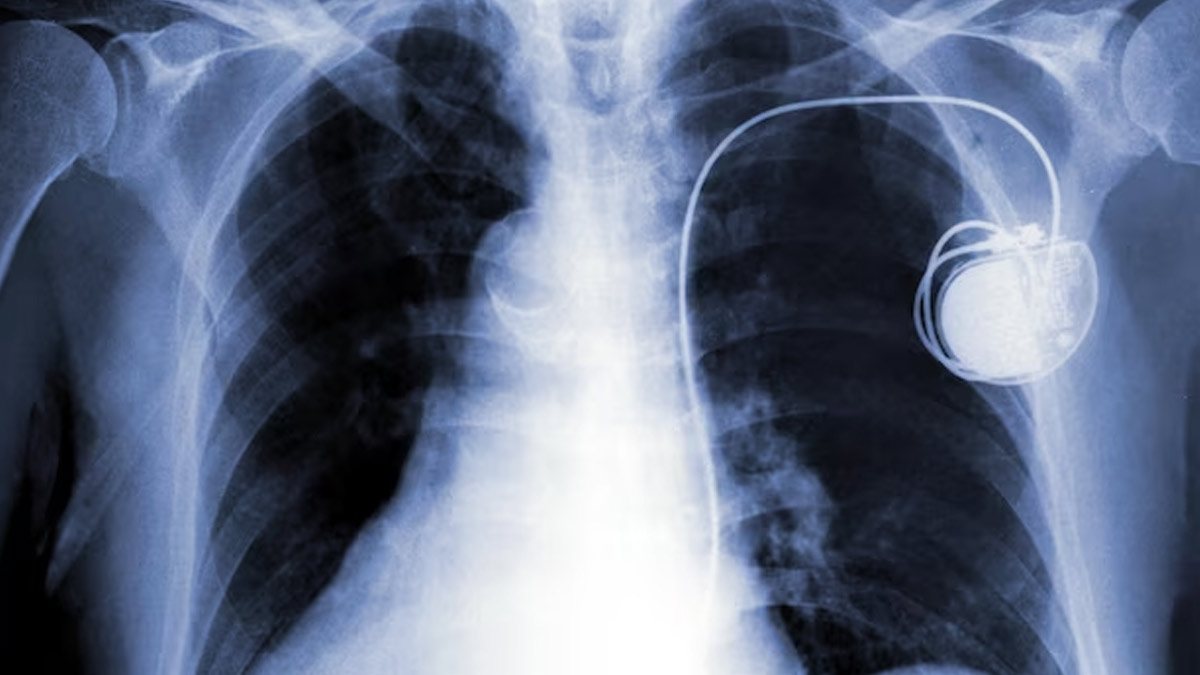
An artificial pacemaker is a medical device designed to send electrical impulses to the heart muscles to regulate the heartbeat. When the normal electrical conduction system of the heart fails to function properly, resulting in irregular heartbeats or bradycardia (slow heart rate), it becomes an important intervention for some cardiac patients.
Table of Content:-
“Every pacemaker has a lifespan, which varies depending on the type of pacemaker used. A pacemaker's normal lifespan is 8-14 years, in my opinion. Once this time has passed, the pacemaker's battery must be replaced, which is accomplished by computer programming. This is easier to perform if the person has been seeing the same doctor since learning how long the pacemaker has been working,” said Dr Balbir Singh, Chairman/Head Of Cardiology, MAx super Specialty Hospital, Saket. Here are some scenarios in which an artificial pacemaker may be required for heart patients:
Bradycardia
A slow heart rate can be a result of ageing, heart disease, or other medical conditions. If the heart rate drops significantly below the normal range and leads to symptoms such as:
- Dizziness
- Fainting
- Fatigue, or shortness of breath, a pacemaker may be recommended to maintain a more regular and adequate heart rate.
.jpg)
Atrioventricular Block
AV block is a condition where the electrical signals between the atria which are the upper chambers and ventricles or the lower chambers of the heart are delayed or blocked.
Severe cases of atrioventricular block, especially those causing significant symptoms or heart failure, may begin the use of a pacemaker to ensure proper coordination between the heart chambers.
Also read: Heart Attack Deaths 40% Up in Under-30 Post Covid: Here’s What Can Be The Reason
Sick Sinus Syndrome
Sick sinus syndrome refers to a group of heart rhythm disorders where the sinus node, the heart's natural pacemaker, doesn't function properly.
According to MayoClinic, sick sinus syndrome can strike anyone at any age. It is particularly common in adults over the age of 70. . A pacemaker may be implanted to regulate the heart rate and maintain a steady rhythm.
Heart Failure with Conduction Delays
In some cases of heart failure, there may be conduction delays or electrical abnormalities that contribute to inefficient pumping of the heart. Pacemakers, often combined with other cardiac devices like defibrillators, can help optimise the heart's function.
.jpg)
Syncope of Unknown Cause
If a patient experiences recurrent episodes of unexplained fainting or syncope, and it is determined to be related to bradycardia or pauses in the heart rhythm, a pacemaker may be recommended to prevent further episodes.
Atrial Fibrillation with Bradycardia
For individuals with atrial fibrillation or irregular or rapid heartbeat who also experience slow heart rates, a pacemaker may be used in conjunction with other treatments to manage the heart's rhythm.
It's important to note that the decision to implant a pacemaker is made based on a thorough evaluation of the patient's medical history, symptoms, and diagnostic tests. The implantation procedure is typically performed by a cardiologist or an electrophysiologist, and the device is placed under the skin, usually in the chest area, with leads connected to the heart.
Also read: nDo You Have A Heart Defect? Here's How You Can Prepare Yourself For Maratho
Patients who acquire a pacemaker require continual monitoring and may require alterations to the device's settings on a regular basis.
Regular follow-up consultations with the healthcare team are required to confirm that the pacemaker is working properly and that it is meeting the patient's individual cardiac demands.
Also watch this video
How we keep this article up to date:
We work with experts and keep a close eye on the latest in health and wellness. Whenever there is a new research or helpful information, we update our articles with accurate and useful advice.
Current Version
